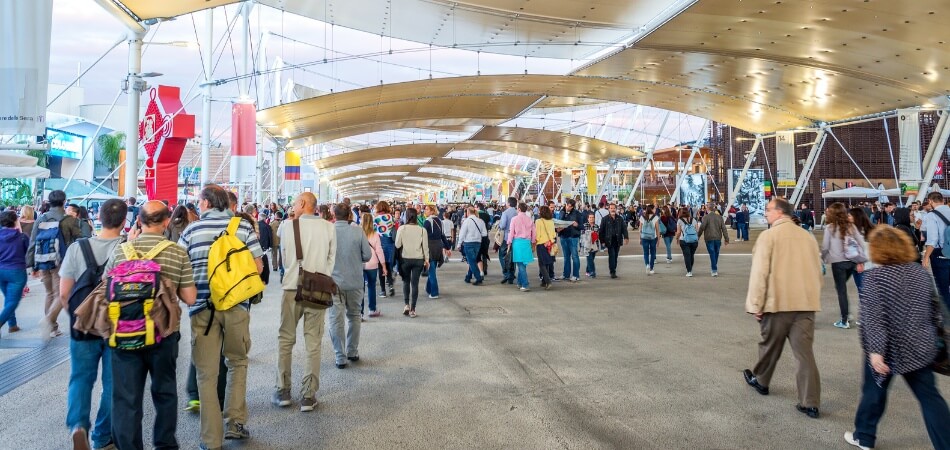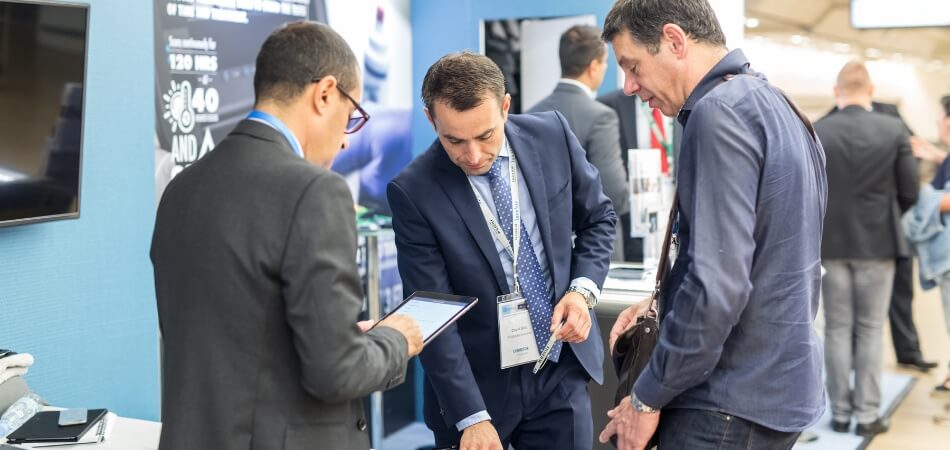Exhibitions, particularly those tailored for students, offer a unique blend of learning and real-world experience, merging academic knowledge with industry insights. This article delves into the numerous benefits of an exhibition for students.
These events serve as a gateway to the professional world, offering unparalleled networking opportunities and career insights. More than just a showcase of products and services, they provide hands-on learning experiences that are crucial in helping students make well-informed decisions about their educational paths and future careers.
As we explore these advantages in detail, we invite you to continue reading to discover how exhibitions can significantly shape and enhance a student’s journey toward their professional aspirations.
What is the Expo Exhibition and How Does it Work?
The Expo Exhibition is a global event, showcasing innovations and fostering international collaboration. It serves as a platform for nations to present their cultural and technological advancements. Held every five years, the Expo attracts visitors and participants from around the world.

In its operational framework, countries set up pavilions to display their achievements and ideas. These pavilions become hubs for cultural exchange, innovation sharing, and business networking. The Expo also features seminars, cultural events, and interactive exhibits, offering a comprehensive global experience.
Types of Exhibitions Perfect for Students
Exhibitions offer diverse learning landscapes for students, each type catering to different educational needs and interests. These platforms provide interactive experiences, blending knowledge with real-world applications. From career fairs to scientific expos, the variety is vast and enriching.
Career and Job Fairs
Career fairs are instrumental for students exploring future professions. They connect students with potential employers, offering insights into various industries. Here, students can engage in networking, attend workshops, and discover internship opportunities. Such fairs are critical in bridging the gap between academia and the job market.
Scientific and Research Expositions
Scientific expos focus on the latest advancements in technology and research. Students can interact with innovators and scientists, gaining exposure to cutting-edge developments. These expositions encourage curiosity and inspire students towards scientific inquiry and innovation. They are ideal for those interested in STEM fields.
Cultural and Art Exhibitions
Cultural exhibitions showcase artistic and cultural heritage, offering a window into diverse traditions and histories. Students can immerse themselves in different artistic expressions, enhancing their understanding and appreciation of global cultures. These exhibitions are perfect for those with an interest in arts and humanities.
Educational Conferences and Seminars
Educational seminars provide in-depth knowledge on specific topics. These events often feature expert speakers and interactive sessions, offering a focused learning environment. They are ideal for students seeking specialized knowledge or academic enrichment in particular subjects.
Exhibitions present a world of opportunities for students to learn, explore, and connect. Each type of exhibition holds unique benefits, catering to the myriad interests and career aspirations of students. Embracing these experiences can significantly enrich a student’s educational journey.
How Can a Student Find the Right Exhibition to Attend?
Selecting the right exhibition can be a pivotal step in a student’s educational journey. It involves understanding one’s interests and career goals. Finding a fitting exhibition requires research and guidance to ensure it aligns with personal aspirations.
Consult Academic Advisors and Mentors
Academic advisors and mentors are invaluable resources in this quest. They can provide personalized recommendations based on a student’s academic performance and interests. Utilizing their experience and network, advisors can point students toward events that align with their career aspirations.
Students should also seek insights from mentors who have industry experience. These individuals can suggest exhibitions that offer real-world relevance and networking opportunities. Their guidance is often based on firsthand experience and professional connections.
Leverage Online Resources and Social Media
The internet is a treasure trove of information on various exhibitions. Students can search for events related to their field of study or interests. Websites and online forums provide detailed information about the scope, theme, and participants of exhibitions.
Social media platforms are also useful for finding exhibitions. Following industry leaders, educational institutions, and professional groups on these platforms can lead to updates about upcoming events. Engaging in online communities can also provide recommendations and reviews from peers.
Finding the right exhibition involves a blend of personal introspection, advice from mentors, and leveraging online resources. By taking a proactive approach, students can identify exhibitions that not only align with their academic and career goals but also offer enriching experiences. This process is crucial for maximizing the benefits of attending such events.
Benefits of an Exhibition for Students
Exhibitions offer students a dynamic platform for learning and personal growth. They provide unique experiences that extend beyond traditional classroom education. Here, we explore the top seven benefits of attending exhibitions for students.

Exposure to New Ideas and Technologies
Exhibitions introduce students to the latest ideas and technologies in various fields. This exposure broadens their understanding and sparks creativity. By witnessing innovations first-hand, students can connect classroom theories to real-world applications.
These events often feature cutting-edge products and services, offering a glimpse into the future. Students can interact with innovators, gaining insights into emerging trends and technologies. This experience is invaluable for staying ahead in an ever-evolving world.
Networking Opportunities
Exhibitions are excellent venues for networking. Students can meet professionals and peers, opening doors to future career opportunities. These interactions can lead to mentorships, internships, or even job offers.
Networking at these events helps build communication and social skills. Engaging with industry experts and fellow attendees enhances a student’s professional circle. This can be instrumental in their career development and growth.
Career Guidance and Insights
Students gain crucial career insights at exhibitions. They learn about various industries, job roles, and the skills required in different fields. This information is vital for making informed career choices.
These events often feature career workshops and seminars. Participating in these sessions provides students with guidance and advice from seasoned professionals. This can shape their career path and educational choices.
Hands-On Learning Experiences
Many exhibitions offer interactive workshops and demonstrations. Students can engage in hands-on activities, enhancing their practical skills. This experiential learning is a significant supplement to classroom education.
These interactive sessions also foster problem-solving and critical-thinking skills. Engaging in practical activities helps students apply theoretical knowledge in real-life scenarios. This enhances their understanding and retention of concepts.
Cultural Exchange and Global Perspective
International exhibitions provide a platform for cultural exchange. Students can experience diverse cultures, broadening their global perspective. This is crucial in today’s interconnected world.
Interacting with people from different backgrounds fosters tolerance and understanding. It helps students appreciate diversity and develop a more inclusive worldview. This is essential for personal and professional growth in a globalized environment.
Personal Development
Attending exhibitions contributes to personal development. Students learn to navigate new environments and interact with a diverse set of people. This boosts their confidence and independence.
These experiences also enhance organizational and planning skills. Preparing for and attending exhibitions requires time management and strategic thinking. These are valuable life skills that benefit students in various aspects of their lives.
Inspiration and Motivation
Exhibitions can be a source of inspiration and motivation for students. Seeing successful professionals and groundbreaking innovations can ignite a passion for their chosen field. This can motivate students to pursue their goals with renewed enthusiasm.
Being part of a vibrant and dynamic environment stimulates creativity and ambition. It encourages students to dream big and work towards achieving their aspirations. This motivational aspect is a significant benefit of attending exhibitions.
Exhibitions offer a multitude of benefits for students, from practical learning experiences to personal growth opportunities. They serve as a bridge between academic knowledge and the real world, enriching a student’s educational journey. By participating in these events, students can enhance their skills, broaden their perspectives, and pave the way for a successful future.
Tips for Students to Utilize the Exhibitions to its Fullest
Attending an exhibition can be a transformative experience for students, offering a wealth of knowledge and opportunities. To fully benefit from these events, it’s crucial to approach them strategically. Here are some essential tips to help students utilize exhibitions to their fullest potential:

- Research Thoroughly Beforehand: Investigate the exhibition’s theme, participants, and schedule. This preparation allows students to identify must-visit booths and sessions, maximizing their time.
- Set Clear Objectives: Define what you want to achieve from the exhibition, whether it’s gaining industry knowledge or networking. Having specific goals helps focus your efforts and makes the experience more productive.
- Engage Actively in Sessions and Workshops: Participate in discussions and hands-on workshops. This active involvement enhances learning and provides practical experience.
- Network Effectively: Connect with professionals and peers; exchange contact information. These connections can lead to mentorship, internship, or career opportunities in the future.
- Take Notes and Document Experiences: Keep a record of insights, contacts, and ideas. Reviewing these notes later can provide clarity and serve as a valuable resource.
- Follow-Up Post-Exhibition: Reach out to contacts made during the event. This follow-up solidifies relationships and can open doors to future opportunities.
- Reflect on the Experience: After the event, take time to reflect on what you learned and how it applies to your goals. This reflection helps in integrating the experience into your academic and career plans.
With these given tips, students can transform their exhibition experience into a significant stepping stone for their academic and career development. It’s about being proactive, engaged, and strategic to reap the full benefits of these enlightening events.
Endnotes
The benefits of an exhibition for students are multifaceted, encompassing everything from exposure to new ideas and technologies to personal development and networking opportunities.
These events serve as a crucial bridge between academic learning and real-world applications, empowering students with the knowledge, skills, and connections necessary to thrive in their future careers. Students must approach these exhibitions with a strategic mindset, doing thorough research beforehand, setting clear objectives, and actively engaging in sessions and workshops.
By effectively networking, taking detailed notes, and reflecting on their experiences, students can maximize the potential benefits. These actions not only enrich their current academic journey but also lay a solid foundation for their professional growth, underscoring the significant impact exhibitions can have on a student’s educational and career trajectory.


